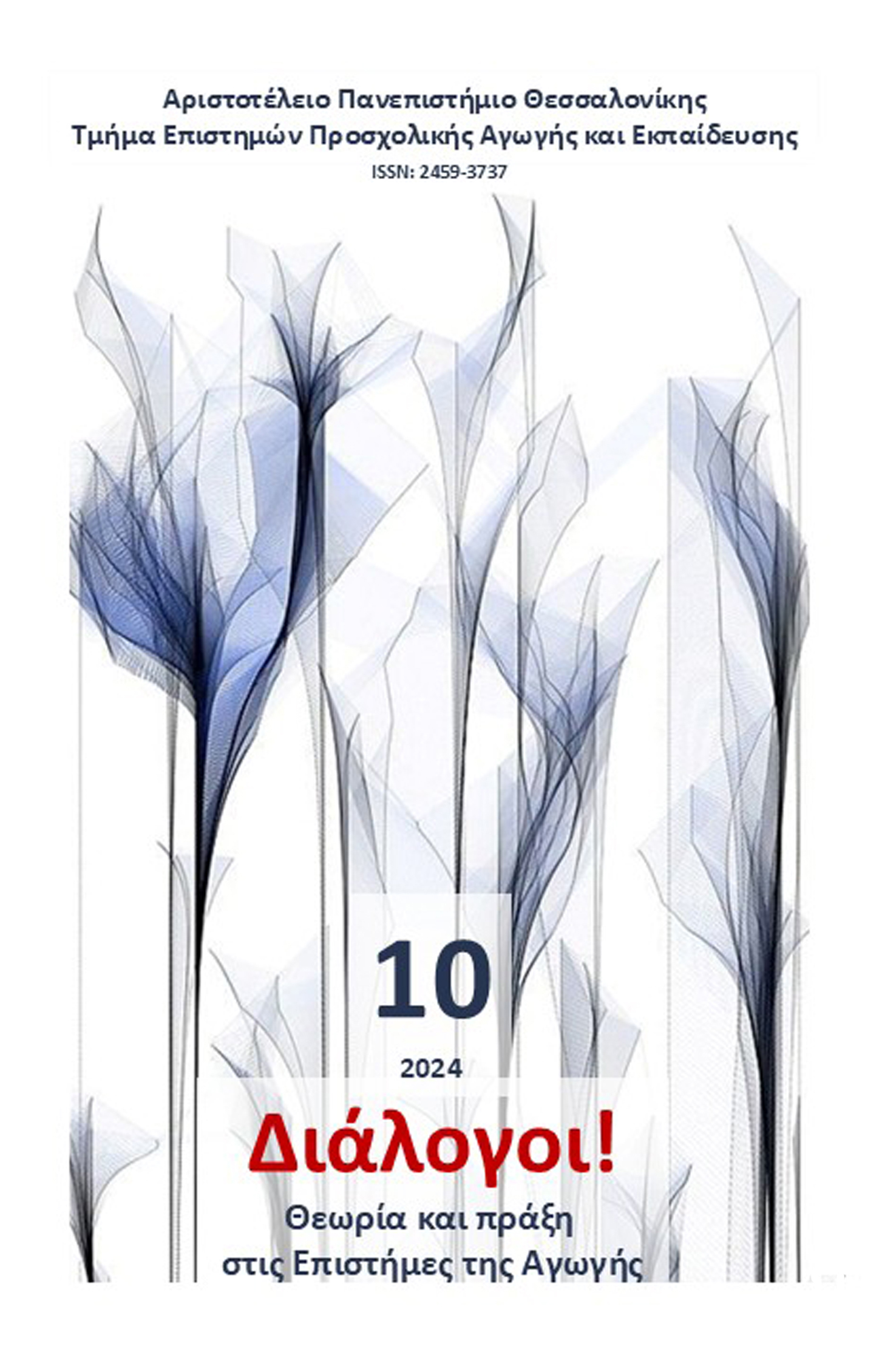Το παιχνίδι ρόλων και οι επιδράσεις του σε μάθημα προγραμματισμού υπολογιστών πρώτου εξαμήνου

Περίληψη
Το άρθρο παρουσιάζει την πιλοτική εφαρμογή ανάθεσης ρόλων σε μέλη ομαδικών εργασιών για την ανάπτυξη μιας εφαρμογής λογισμικού σε μάθημα πρώτου εξαμήνου, το οποίο προσφέρεται σε σχολή μηχανικών που δεν θεραπεύει την επιστήμη και τεχνολογία υπολογιστών. Το μάθημα εφαρμογής είναι η Μεθοδολογία Προγραμματισμού Υπολογιστών της Σχολής Μηχανικών Παραγωγής και Διοίκησης του Πολυτεχνείου Κρήτης, όπου οι πρωτοετείς έχουν χαμηλή συμμετοχή στις εξετάσεις, παρά την συμμετοχή τους στις διαλέξεις και τα εργαστήρια. Προκειμένου να ενισχυθεί η αυτοπεποίθησή τους και να δοθούν επιπλέον ευκαιρίες μάθησης, ο διδάσκων εισήγαγε τον συνδυασμό των δύο εκπαιδευτικών τεχνικών, ως μία έξτρα δυνατότητα. Οι ομάδες συγκροτήθηκαν από τέσσερα έως πέντε άτομα, ενώ οι ρόλοι που ανατέθηκαν είναι του Συντονιστή, του Αναλυτή, των Προγραμματιστών (δύο άτομα) και του Ελεγκτή. Τα αποτελέσματα έδειξαν τη θετική σχέση μεταξύ της ομαδικής εργασίας με ρόλους και της συμμετοχής στις εξετάσεις, ενώ επιβεβαιώθηκε η διαφορά στάσεων σε σχέση με το φύλο στα μαθήματα προγραμματισμού. Επιπλέον, η ανάλυση της μαθησιακής εμπειρίας με αξιοποίηση του μοντέλου Kano, έδωσε σημαντικές πληροφορίες στον διδάσκοντα για το τι θεωρούν οι φοιτητές/τριες επιθυμητά ή ελκυστικά ή αδιάφορα χαρακτηριστικά του σχεδιασμού του μαθήματος. Αν και η ταξινόμηση των περισσοτέρων χαρακτηριστικών ως επιθυμητής ποιότητας ήταν λίγο-πολύ αναμενόμενη, η ταξινόμηση ορισμένων ως ελκυστικής ή αδιάφορης ποιότητας αποτέλεσε μια πολύτιμη ανατροφοδότηση.
Λεπτομέρειες άρθρου
- Πώς να δημιουργήσετε Αναφορές
-
Σπανουδάκης Ν., & Κρασαδάκη Ε. (2024). Το παιχνίδι ρόλων και οι επιδράσεις του σε μάθημα προγραμματισμού υπολογιστών πρώτου εξαμήνου. Διάλογοι! Θεωρία και πράξη στις επιστήμες αγωγής και εκπαίδευσης, 10, 262–274. https://doi.org/10.12681/dial.36789
- Τεύχος
- Τόμ. 10 (2024)
- Ενότητα
- Παρουσιάσεις καινοτόμων προγραμμάτων

Αυτή η εργασία είναι αδειοδοτημένη υπό το CC Αναφορά Δημιουργού – Μη Εμπορική Χρήση – Παρόμοια Διανομή 4.0.
Οι συγγραφείς των άρθρων που δημοσιεύονται στο Διάλογοι! Θεωρία και Πράξη στις Επιστήμες Αγωγής και Εκπαίδευσης διατηρούν τα δικαιώματα πνευματικής ιδιοκτησίας επί των άρθρων τους, δίνοντας στο περιοδικό το δικαίωμα της πρώτης δημοσίευσης. Άρθρα που δημοσιεύονται στο Διάλογοι! Θεωρία και Πράξη στις Επιστήμες της Αγωγής και Εκπαίδευσης διατίθενται με άδεια Creative Commons 4.0 και σύμφωνα με την άδεια μπορούν να χρησιμοποιούνται ελεύθερα, με αναφορά στον/στη συγγραφέα και στην πρώτη δημοσίευση για μη κερδοσκοπικούς σκοπούς και με δικαίωμα τροποποίησης μόνον με παρόμοια διανομή (αν αναμείξετε, τροποποιήσετε, ή δημιουργήσετε πάνω στο υλικό, πρέπει να διανείμετε τις δικές σας συνεισφορές υπό την ίδια άδεια όπως και το πρωτότυπο).
To Τμήμα Επιστημών Προσχολικής Αγωγής και Εκπαίδευσης του Αριστοτέλειου Πανεπιστημίου Θεσσαλονίκης και το Εθνικό Κέντρο Τεκμηρίωσης διατηρούν το δικαίωμα να δημοσιεύουν, να αναπαραγάγουν, να παρουσιάζουν στο κοινό, να διανέμουν και να χρησιμοποιούν άρθρα που δημοσιεύονται στο Διάλογοι! Θεωρία και Πράξη στις Επιστήμες Αγωγής και Εκπαίδευσης σε οποιοδήποτε μέσο και μορφή είτε μεμονωμένα είτε ως μέρη συλλογικών έργων, για όλο το χρόνο διάρκειας προστασίας της πνευματικής ιδιοκτησίας και για όλες τις χώρες του κόσμου.
Αυτό περιλαμβάνει ενδεικτικά, και όχι αποκλειστικά, το δικαίωμα δημοσίευσης των άρθρων σε τεύχη του περιοδικού Διάλογοι! Θεωρία και Πράξη στις Επιστήμες Αγωγής και Εκπαίδευσης, αναπαραγωγής και διανομής μεμονωμένων αντιγράφων των άρθρων, αναπαραγωγής ολόκληρων των άρθρων σε άλλη έκδοση του Τμήματος Επιστημών Προσχολικής Αγωγής και Εκπαίδευσης του Αριστοτέλειου Πανεπιστημίου Θεσσαλονίκης και του Εθνικού Κέντρου Τεκμηρίωσης και αναπαραγωγής και διανομής των άρθρων ή περίληψης αυτών με χρήση πληροφορικού συστήματος αποθετηρίου.


